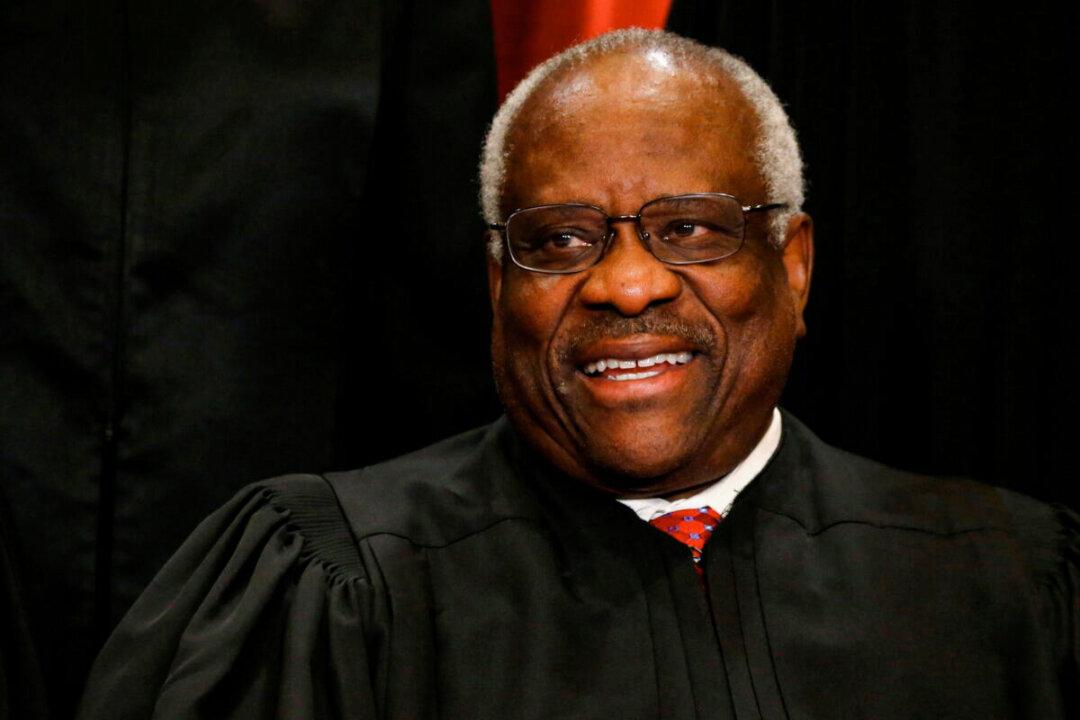Georgia’s state Senate passed legislation on Feb. 14 to erect a statue honoring U.S. Supreme Court Justice Clarence Thomas at the state capitol in Atlanta, despite the impassioned objections of Democratic lawmakers.
Thomas, a black man, has long been a target of the left for his conservative, constitutionalist views and has been bitterly denounced by Democrats for years, often in offensive, racial terms.





